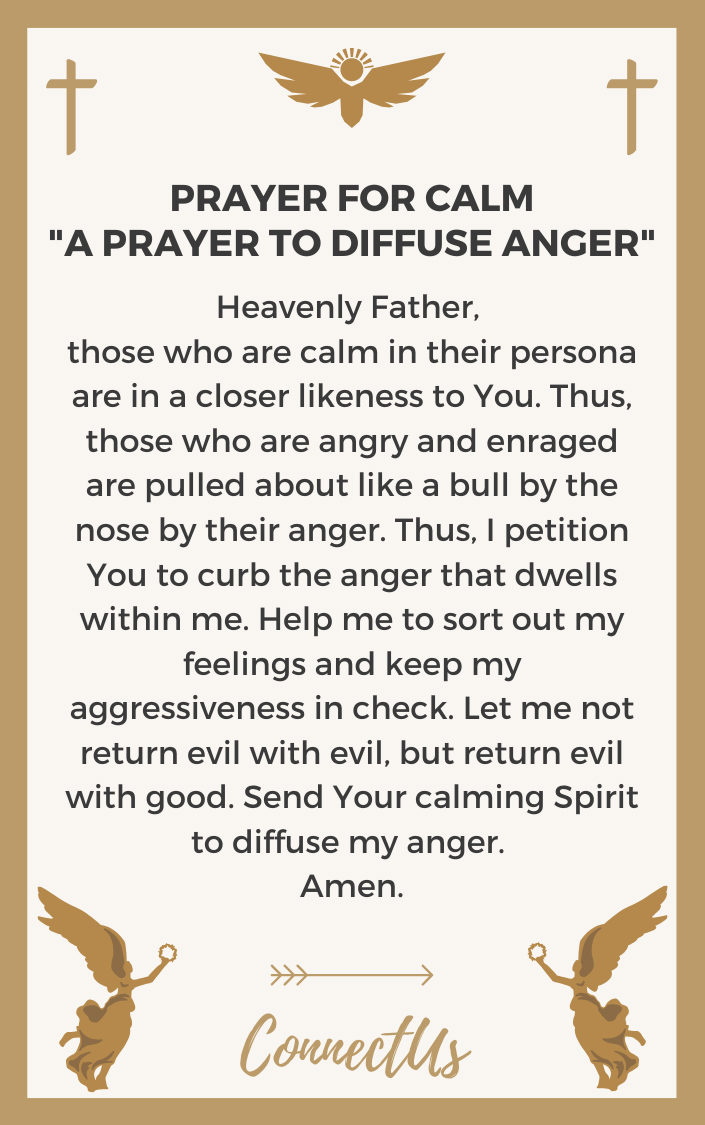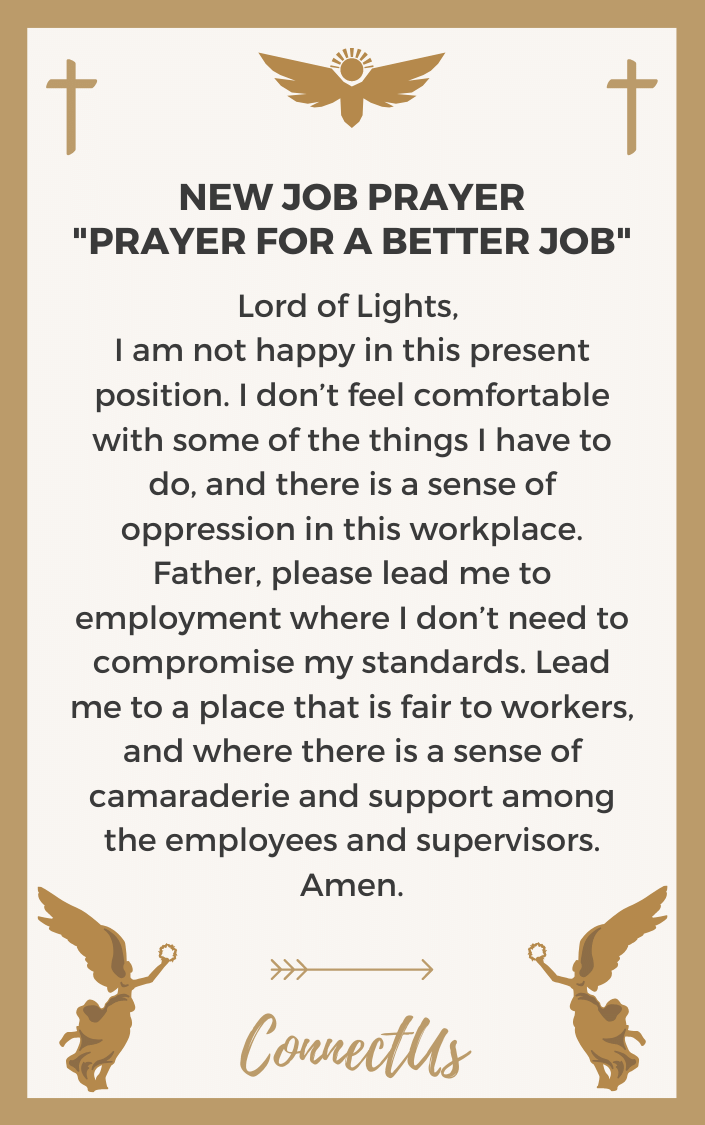Anger is a natural emotion that can be felt when we experience something that upsets us. However, anger can also lead to destructive behaviors, such as violence. Unfortunately, anger is also a common emotion that many people experience regularly. If you find yourself feeling angry often, there are some things that you can do to help calm down and control your emotions. One of the most effective ways to manage anger is through prayer. Prayer can help you connect with God, who can provide you with guidance and strength when you’re feeling angry. Additionally, prayer can help you connect with other people who may be experiencing similar emotions, which can help to reduce the feelings of isolation that often contribute to anger.
What is anger?
Anger is defined as a feeling of anger, irritation, or outrage. It is often characterized by an increased heart rate, shortness of breath, and an increased desire to retaliate. While anger can be a healthy response to certain situations, too much anger can lead to harmful outcomes.
Because anger is such a powerful emotion, it can be difficult to control. When anger becomes uncontrolled, it can lead to destructive behaviors like violence and aggression. Additionally, uncontrolled anger can have a negative impact on relationships and work productivity.
There are several ways to manage and control anger. One approach is to identify the sources of your anger. Once you know the reasons why you’re angry, you can better deal with the emotions in a healthy way.
Another way to manage anger is through prayer. Prayers can help us focus on God’s perspective and calm our hearts. Prayers also provide us with strength during difficult times. Prayer can help us control our emotions and stay grounded in reality.
Types of anger
There are many different types of anger, which can make it difficult to deal with. Here are some tips on how to cope with different types of anger:
1. Irritability: This type of anger is often caused by feeling overwhelmed or stressed. Try taking some time for yourself to relax and focus on your breathing to help calm down your emotions.
2. Frustration: When something doesn’t go our way, we can feel frustrated and angry. Fighting against the situation or person can lead to further frustration and increased anger. Try taking a step back and assessing the situation, then try to find a solution that works for both sides.
3. Jealousy: When we feel jealous or threatened, our mood can turn sour very quickly. Trying to suppress or ignore the jealousy will only make it worse. Instead, talk about the jealousy openly with a trusted person, and consider seeking professional assistance if the jealousy is affecting your quality of life.
4. Rage: This type of anger is often associated with physical violence or destructive behaviors. If you’re experiencing rage, seek out help from a professional immediately. While rage is often uncontrollable, there are steps that you can take to manage it safely.
How to calm down anger
Anger can be incredibly frustrating and overwhelming. It can feel like a never-ending cycle where everything you do is met with animosity.
Fortunately, there are ways to calm down anger and restore peace and balance in your life.
First and foremost, it’s important to understand the root of your anger. What triggers it? What makes you angry? Once you identify the underlying factors, you can start to strategies to address them.
For example, if your anger is sparked by stress or frustration, try finding ways to reduce or eliminate those sources of stress. If you’re prone to getting angry over small things, make sure to set realistic expectations for yourself and others. And lastly, remember that feeling anger isn’t always a bad thing—sometimes it’s necessary for effective communication or fighting for what’s rightfully ours.
If anger becomes a regular problem in your life, consider seeking out professional help. A therapist or counselor can teach you how to manage your anger more effectively and live a healthier lifestyle overall.
Tips for reducing anger
Anger is a normal, human emotion, but it can lead to problems when it’s uncontrolled. Here are some tips to help reduce anger:
1. Talk about your feelings. It can be helpful to talk about your anger with a trusted friend or family member. This will help you get perspective on the situation and figure out ways to address the anger without getting angry.
2. Practice mindfulness. Mindfulness is a mental practice that helps you focus on your present moment experience without judgment. When you practice mindfulness, you can learn to identify and examine how your thoughts and emotions are affecting your body and emotions. This can help you regulate your anger better.
3. Exercise regularly. Being physically active can help reduce stress and improve moods in general. Studies have found that exercise can actually activate a different part of the brain that’s linked to happiness and stress relief. So if you’re struggling with anger, try incorporating some exercise into your routine to see if it helps ease the tension.
4. Spend time with loved ones. Spending time with loved ones is a great way to reduce stress and anxiety, both of which can lead to Anger problems in adults (and children). Drinks, drugs, parties- these
Anger is a normal emotional response to stress
Anger is a normal emotional response to stress. It’s important to remember that anger is just a feeling and it doesn’t always make sense.
Some things that can make anger worse include drinking alcohol, smoking cigarettes, and using drugs. These things can increase your levels of stress and make it harder to control your anger.
If you’re angry a lot, it might be helpful to talk to someone about it. Talking about how you’re feeling can help you calm down and think more clearly.
Praying for peace and calm can help to reduce anger
Prayer can be an effective way to calm down anger. When you pray, you ask for peace and calmness in your heart and mind. This can help to reduce the intensity of your anger, and may also help to restore balance in your life.
There are many different types of prayer that can be helpful in reducing anger. Some examples include prayers of gratitude, petitions for mercy, and invocations of Divine love. Prayer can also focus on specific situations or objects that are causing you distress.
Whenever you find yourself feeling angry, it is always helpful to take some time for prayer. The Lord will help you to understand your feelings, and He will give you the strength to deal with them constructively.
There are many different types of prayer that can help to reduce anger
Anger is often a strong emotion that can be difficult to control. When anger is out of control, it can lead to harmful behaviors and conflict. Prayer can help to calm down anger and restore balance.
There are many different types of prayer that can help to reduce anger. Some common types of prayer include gratitude prayer, petition prayer, and intercessionary prayer. These prayers can help you focus on your positive emotions and connect with God in a personal way.
Prayer can also help you learn how to Deal with Anger Wisely. This includes learning how to recognize when anger is appropriate and when it needs to be addressed, as well as learning how to stay calm in difficult situations.
Practice regularly calming prayers before challenging situations arise
Anger can be a powerful emotion, but if it’s not controlled, it can lead to destructive behaviors. Luckily, there are ways to control anger and prevent its harmful consequences. One way to do this is to practice regularly calming prayers before challenging situations arise. By invoking the help of God or any Higher Power, we can tap into a powerful source of inner strength and calmness. This will allow us to handle difficult situations with composure and wisdom.
Anger can be a difficult emotion to deal with, but there are ways to calm down and control your rage. Prayer is one of the most effective methods for restoring peace and sanity when anger starts to take over. There are many different types of prayers that can help you focus on your intentions and calm yourself down. Finding the right prayer for you may take some time, but it is well worth it in the long run.






